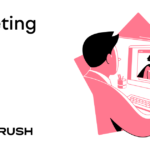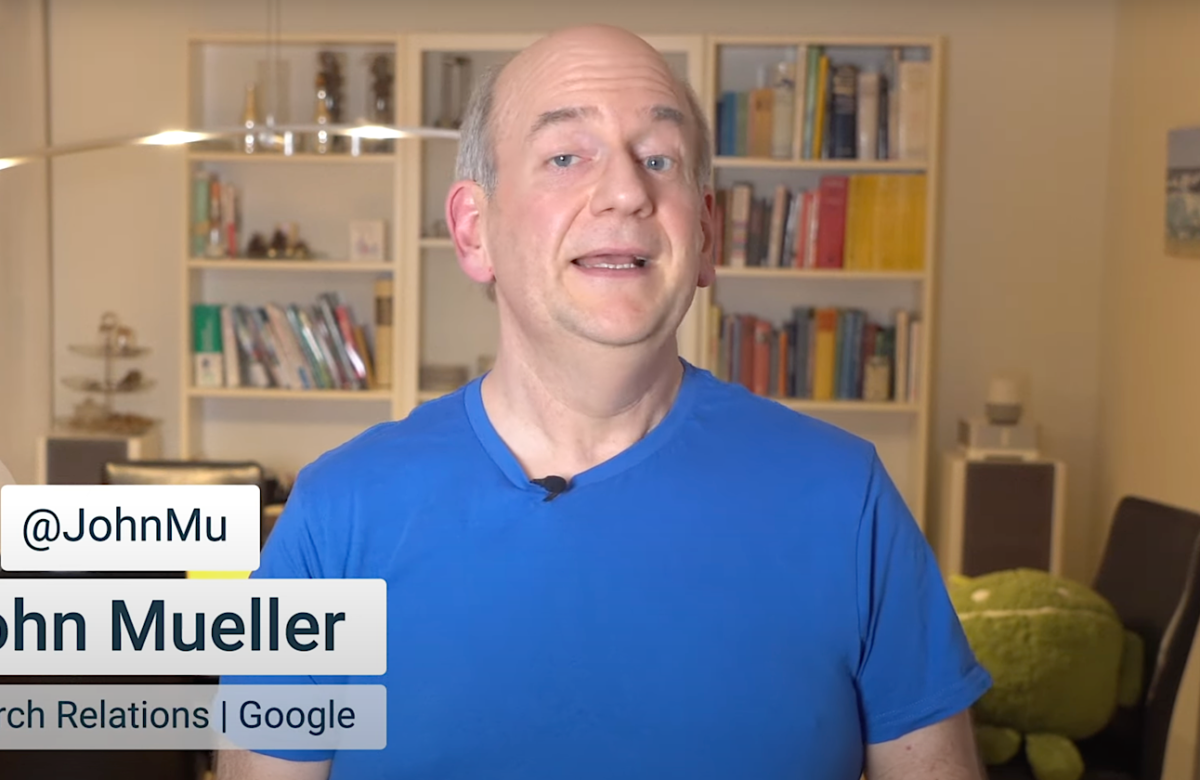
The ultimate guide for SEOs
- Digital MarketingNewsTechnology
- November 17, 2023
- No Comment
- 117
[ad_1]
When The Verge revealed “The individuals who ruined the web” on Nov. 1, it prompted a shockwave throughout the SEO (SEO) world. Their author, Amanda Chicago Lewis, described us in a very unflattering manner:
- “So who finally ends up with a profession in search engine optimisation? The stereotype is that of a hustler: a content material goblin keen to eschew guidelines, morals, and good style in trade for eyeballs and mountains of money. A nihilist in it for the thrills, a prankster gleeful about getting away with one thing.”
As you may be capable to guess, calling folks “content material goblins” doesn’t are likely to make them really feel notably nice. So, predictably, the article did what it appeared designed to do: The Verge made many search entrepreneurs indignant, including me.
Whereas that is one other response piece, I gained’t be repeating the claims made earlier than me. If you happen to’d wish to compensate for this story, you could find another notable replies right here:
As a substitute, I’d like us to make use of The Verge as a jumping-off level. I’ll present you why I contemplate their piece problematic, describe the impression it’s had on us in search engine optimisation, after which zoom out to what I see because the extra fascinating dialog:
Who, if anybody, “ruined the web” and the way did it get us the place we are actually?
Buckle up. It’s going to be a protracted journey.

Why we care
Right here’s my bigger level: the Verge article was appropriate in stating an issue. The net, because it exists right this moment, is in hassle. Issues are falling aside earlier than our eyes and one thing wants to vary.
Nonetheless, the Verge didn’t level their finger in the appropriate path. As a substitute, I suggest a extra advanced rationalization – the net is caught in a “sucker’s alternative” created by the promoting and publishing establishment.
Everybody who needs to make a dwelling on-line appears to really feel trapped between two horrible choices:
- Spam and drive your manner into getting folks to concentrate and purchase from you.
- Hand over on ever being profitable, sharing your work with others, or selling your services or products.
However I consider that by correctly inspecting the issue that The Verge identified, we will determine how to not resort to extremes of silence or violence.
Entrepreneurs, journalists, and customers – it’s time for us to have an important dialog in regards to the internet, why it broke, and the way we will repair it.
What occurred
First, I didn’t truly wish to write this piece.
I don’t suppose I’m essentially the most certified individual to take action. I’ve solely been in advertising and marketing for 4 years. I’m not a journalist, and I existed on the 2000s web completely confined to Ukrainian- and Russian-language boards in regards to the Sims, MMORPGs, and Winx Membership. I haven’t lived the historical past of search engine optimisation or the bigger web the way in which most of you studying this most likely have.
However I really feel a deep sense of obligation to do that matter justice. As a result of to date, most of the individuals who I’d have assumed to be extra certified have messed it up. At greatest, main journalists and publications have been treating the sphere of search engine optimisation as some unusual middle-school drama and, at worst, as a shadowy web mafia.
I’m disenchanted in how a lot The Verge’s editor-in-chief, Nilay Patel, has gleefully indulged in celebrating and mocking each little bit of anger that their article caused in our neighborhood.
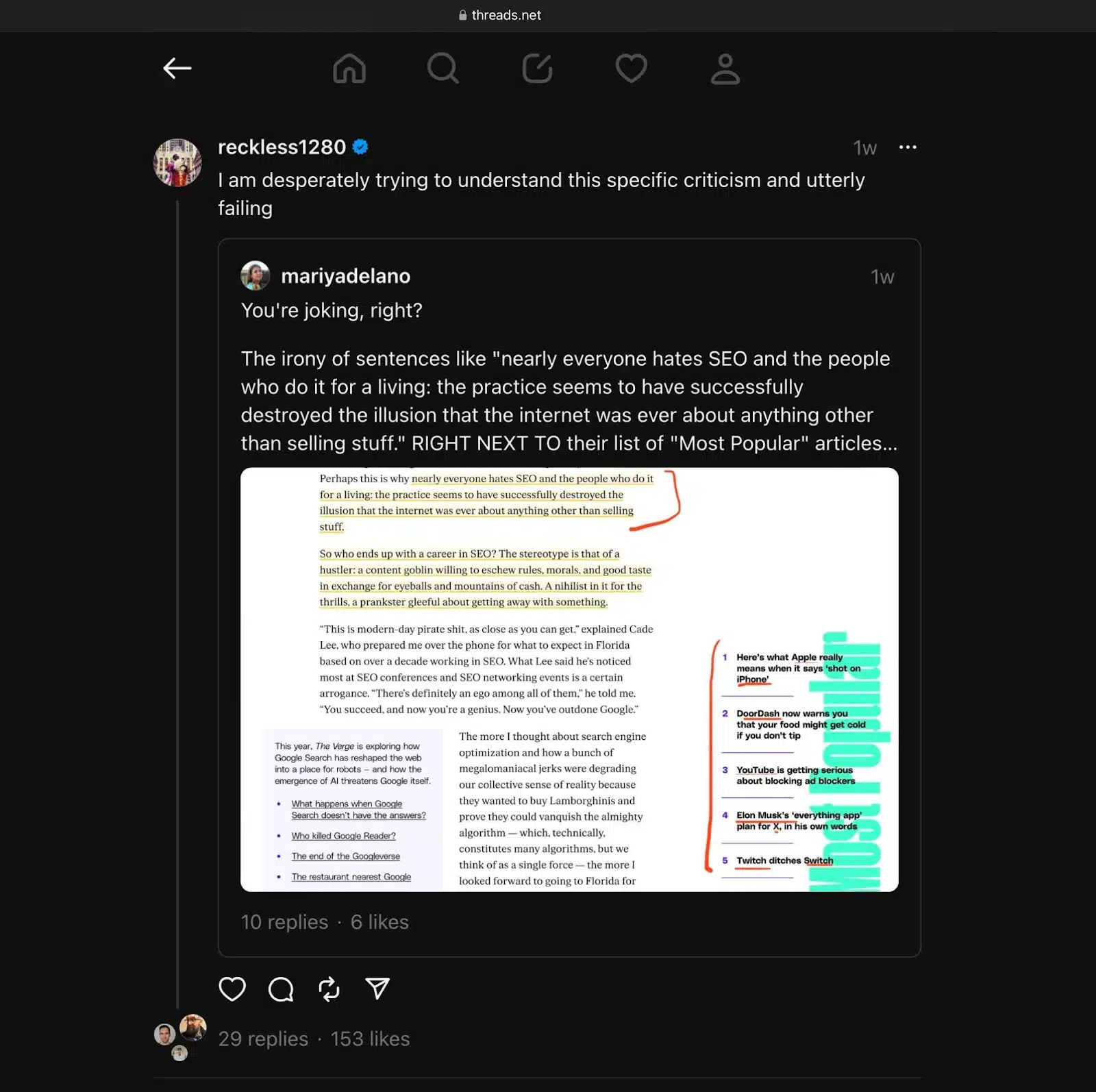
Above all, I’m disenchanted by how little folks like Patel are considering truly speaking to the folks they’re supposedly learning – SEOs and entrepreneurs like me or these of you who frequent Search Engine Land.
Voyeuristic protection like this stinks of tabloids, but Enterprise Insider additionally determined to leap aboard, painting the whole affair as salacious suburban gossip:
- “I by no means thought I’d say these phrases, however, pals: The search engine optimisation drama is spicy.”
It appears that evidently Insider’s author, Katie Notopoulos, shared The Verge’s mindset. Speaking about The Verge’s piece on his podcast, Patel acknowledged:
- “The funniest factor about this entire scenario is the search engine optimisation professionals being mad at us however doing excellent search engine optimisation by intuition, and all of the locations the place they’re yelling at us. Chef’s kiss.”
Patel’s eagerness to drum up strife prompted me to look at whether or not he has some long-standing grudge towards the search engine optimisation career.
I found that he graduated from the identical regulation faculty in the identical yr as my mom’s ex-boyfriend. However, disappointingly, once I requested that ex-boyfriend about it, he stated he didn’t have any recollection of Patel in any respect.
I perceive why our indignant reactions are so compelling. Very like I’m disenchanted that I couldn’t dig up any enjoyable tales about Patel’s regulation faculty years, The Verge appears upset at how devoid of drama the search engine optimisation business really is.
The boring actuality of ‘search engine optimisation subculture’
Patel claims that The Verge’s current piece is about “the tradition of the individuals who apply it professionally.” Effectively, if that was the intent with which Chicago Lewis was despatched on task, no surprise they felt compelled to fabricate outrage.
In any case, search engine optimisation, as a “subculture,” is definitely actually boring. We don’t even have alligators, regardless of The Verge’s claims:
- “I’ve but to see one alligator – although, full disclosure, I as soon as noticed Danny Sullivan and Matt Cutts toss out plush penguins to the viewers at an SMX Superior keynote in Seattle,” recalled Goodwin, managing editor of Search Engine Land and SMX.
Plush penguins sound completely lovable. However they’re a far cry from the supposed antics of “megalomaniacal jerks [who] have been degrading our collective sense of actuality as a result of they needed to purchase Lamborghinis” that Chicago Lewis wrote about.
We aren’t even notably wealthy. Our collective financial standing is woefully unremarkable. As Tommy Walker, founding father of The Content material Studio, defined:
- “The bulk are struggling or “center class” SEOs doing what they will and simply get by.”
I do know it’s straightforward to suppose that we’re all wealthy and profitable. That may be a lot extra “spicy.” And third-party estimates can actually offer you that impression. For example, this email-scraping web site thinks that my company’s income is someplace between $1-5 million.

As a lot as I want that quantity have been true, the truth of working a boutique advertising and marketing company in its second yr is far much less thrilling.

So, if we aren’t millionaires hanging out with alligators, who’re we? What does this “subculture” of SEOs actually seem like?
We’re a career of individuals with an identical skillset: doing duties round serving to web sites present up on engines like google like Google or Bing. That’s… it.
Certain, like several specialised subject, folks in search engine optimisation have a tendency to speak to one another. As described by Duane Forrester, vp of business insights at Yext:
- “The search engine optimisation neighborhood is tight-knit and supportive – everybody began as random usernames in boards, then constructed friendships over years of attending conferences and tackling issues collectively.“
We do speak to different folks in our subject. And, controversially, typically we even like these folks sufficient to hang around collectively!
I perceive that search engine optimisation appears mysterious. In any case, we assist others turn out to be seen on-line. However ourselves, we’re extra hidden.
- “We’re a considerably in-the-background’ business that employs 1000’s of individuals,” Forrester defined.
The Verge claims that they needed to convey our subject out of the shadows and into the highlight. So, let’s do precisely that.
I’d like to begin by introducing you to the those who The Verge overlooked.
To that finish, I’ve interviewed 17 search engine optimisation and advertising and marketing professionals, all showing on this piece.
I’ve additionally created a public gallery to characteristic a few of the fantastic individuals who make up search engine optimisation and have fun how they work to enhance our subject and the net. You possibly can browse through the gallery here, and nominate different SEOs using this form.
The voices they overlooked
Each The Verge and Insider argued that they wished to reveal the folks in search engine optimisation to the general public. However in case you learn their items, you’ll discover a curious absence.
Most SEOs are nowhere to be seen. Neither Chicago Lewis nor Notopoulos inquire in regards to the completely different subgroups of our business, the organizations and communities inside it, the occasions that we run and attend, or {our relationships} with others in our subject and different professions.
As Lily Ray, head of natural analysis at Amsive Digital (and one of many folks quoted in The Verge’s piece), informed me:
- “The article didn’t share sufficient in regards to the work of actual, modern-day SEOs, whose commentary would have painted a way more clear image.”
It doesn’t make sense. Why not simply ask us what we predict? Though our work is usually behind the scenes, we’re straightforward to seek out as folks. Many people love media options and actively hunt down publicity. We’re proper there, able to share our opinions and experience.
However once I tried to have interaction Notopoulos on this actual query, she supplied me a hyperlink after which left me on “seen.”
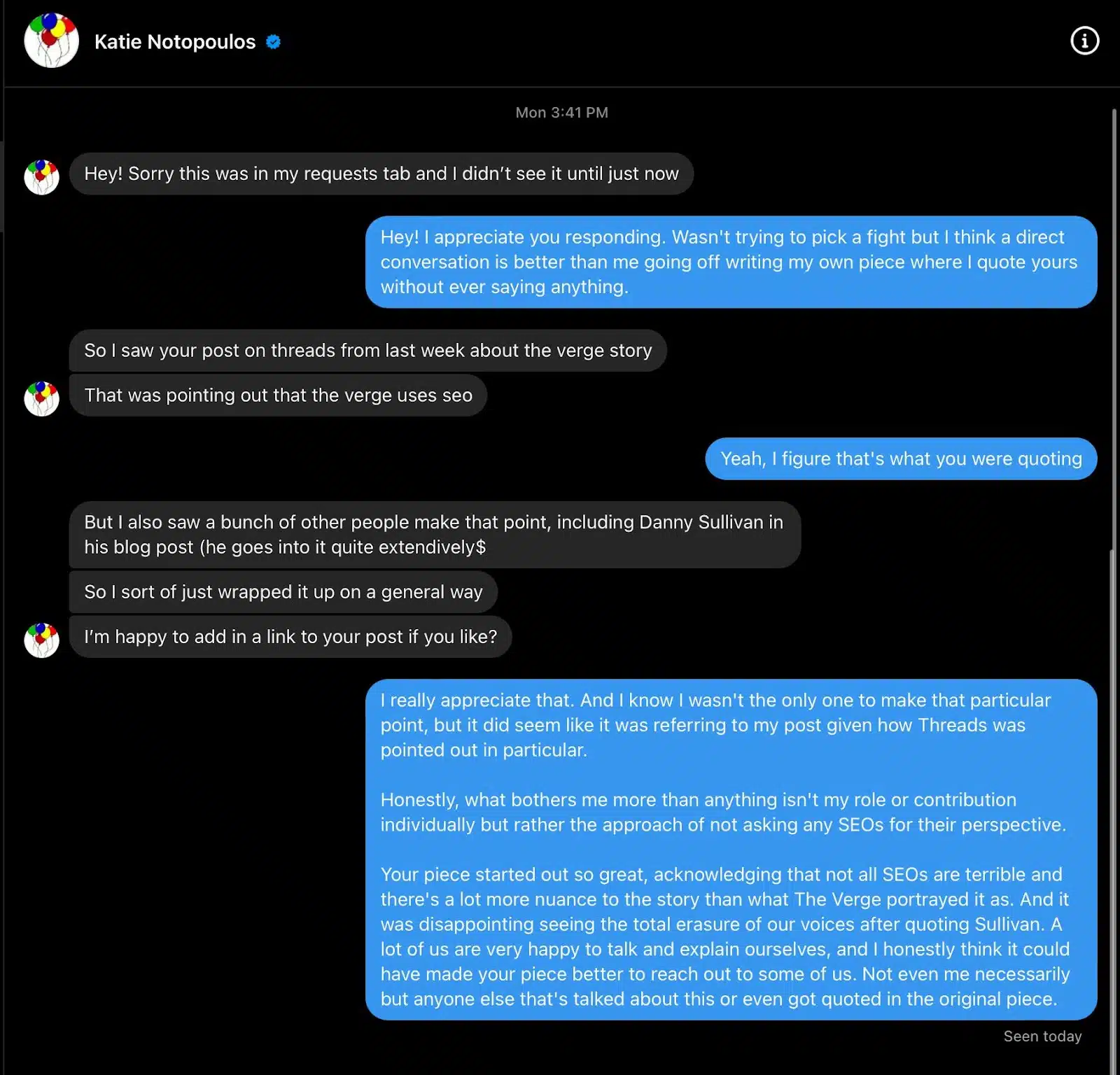
Maybe if these journalists truly listened to us, they could have found voices that didn’t match into their neat narrative. Folks like Walker, who’re riddled with self-doubt as to the impression of their very own work:
- “Is it us that’s ruining the web, or is it Google that’s ruining us? I feel we’ve all been asking that for some time, so then having that mirrored again at us, referred to as content material goblins, and painted as using round in Ferraris being profitable hand over fist, had most of us feeling bewildered and damage.”
I’m neither a full-time journalist nor an professional on journalistic accountability, however I’m a public-facing author and creator. And I do know that once you’re trusted to characterize different folks’s tales, you need to deal with them with care and empathy as a result of actual folks really feel actually damage when their phrases are twisted and misrepresented for anyone else’s acquire.
So, if journalists with years of expertise and massive budgets gained’t do our story justice – I’ll do it.
Armed with my 25 years of being a human on this planet, a beneficiant community of people that supplied up their phrases for this piece, a byline on this “commerce rag,” and solely two weeks of time – right here’s what I managed to place collectively. I hope I’ve managed to offer voice to these of you who felt erased from the opposite protection.
On the finish of the day, this story isn’t about me. It’s about you – the individual studying this piece. It’s about your relationship to the web, the media you eat, and the individuals who make it occur.
Let’s see why it’s all such a large number.
How we will discover a manner out
After we really feel damage and helpless, it’s straightforward to level fingers. If we will blame our ache on anyone else, then we don’t should do the tough work of trying into how we would have contributed to perpetuating our personal struggling. We will merely discover a scapegoat and pin all accountability for fixing the mess on them.
I don’t blame the Verge for falling into this entice. Once they see us (SEOs), they see the individuals who work explicitly serving to companies earn a living on-line. They usually see our function in commercializing the net all too clearly, whereas lacking the opposite events who could have additionally performed a component:
- “Google isn’t excellent. And neither are the folks or the manufacturers that write content material getting discovered on Google,” says Nikki Lam, senior director of search engine optimisation at NP Digital.
However why are we in search of anybody else guilty?
Combating with one another gained’t truly assist us enhance something. So, to discover a answer, I’d wish to reframe the query that The Verge requested of their title.
As a substitute of attempting to level fingers at who ruined the web, let’s diagnose the issue by asking:
- What did “ruining the web” imply?
- How can we enhance the web going ahead?
Learn how to earn a living on the web: The origins of spam
If you wish to perceive the net right this moment, it’s good to take into consideration this picture:

That is an outdated advert from Fox Information that was shared with me by Mastodon consumer HunterNP. An ecommerce platform for locating offers and promo codes is promoting on a conservative information web site with a banner advert that:
- Exhibits an outdated white man studying a newspaper, representing the kind of one who they suppose would go on Fox Information.
- Takes up numerous area on the web page and catches sufficient consideration that somebody took a screenshot of it and remembered it for years.
- Promotes the corporate’s worth proposition of saving cash.
- Targets the presumed curiosity of a Fox Information customer – conservative politics and a keenness for a determine like Ronald Reagan.
All of this feels apparent. Proper now, you’re most likely questioning why I’d level your consideration to an archaic advert in an article about search engine optimisation. However your confusion is the purpose: we’ve been lacking one thing that’s been hiding in plain sight this complete time.
Chicago Lewis explains her distaste for search engine optimisation as a result of “the apply appears to have efficiently destroyed the phantasm that the web was ever about something aside from promoting stuff.”
However that grievance is far bigger in scope than SEO. If “ruining the web” means turning it into a spot for “promoting stuff,” then we have to contemplate on-line adverts, consumer focusing on, and the very apply of digital advertising and marketing.
Why was Groupon promoting on Fox Information? And why do companies promote themselves on-line?
What’s the purpose of search engine optimisation?
Ray informed me that “the purpose of most SEOs isn’t merely to make as a lot cash as potential whereas recklessly ‘ruining the web.’” However SEOs are within the enterprise of serving to firms promote issues, proper?
Earlier than really addressing why the net is full of advertising and marketing, we have to perceive what search engine optimisation and advertising and marketing are. (I anticipate folks exterior Search Engine Land’s typical viewers to learn this piece, so be at liberty to skip this part in case you are already within the subject.)
Chicago Lewis displayed a sure degree of ignorance about our subject. She could have talked to entrepreneurs, however she didn’t really determine what our jobs are for. I’m not saying this to criticize her. Chicago Lewis is in good firm:
- “Actually, the common individual doesn’t perceive what we do. ‘search engine optimisation? What’s that?’ Ten minutes later, clean stares. Or the topic has already modified.” – Goodwin stated.
Advertising isn’t nicely understood in well-liked tradition. And search engine optimisation, as a technical and obscure subset of selling, appears much more complicated. In any case, why would it’s good to optimize something for Google? As Eric Enge, president at Pilot Holding, informed me:
- “Many assume that each one it’s good to do is publish your web site and then you definately’re executed. However that’s not true.”
We incessantly work with companies who don’t know why they could want our assist. They consider that so long as their web site has some type of design, a pair pages, and details about their firm or a subject – that’s all they should get discovered by others.
However engines like google don’t work that manner. You may need the perfect enterprise on the planet, but when your web site doesn’t account for the way customers look issues up or how providers like Google categorize web sites, you gained’t seem on the prime of a search engine outcomes web page (SERP).
Professionals like Enge view their job as a approach to “assist dispel myths about search engine optimisation and assist organizations perceive what they should succeed.” And serving to organizations succeed comes down to 2 varieties of duties:
- Content material search engine optimisation: Creating and helping with creation of pages that may present data, leisure, or different worth to web site guests.
- Technical search engine optimisation: Making certain that websites load nicely, are accurately parsed by engines like google, and supply an excellent consumer expertise.

This separation is the supply of a typical misunderstanding: many SEOs by no means even contact content material. I occur to be a content material specialist, however there are search entrepreneurs on the market who work purely with internet growth, UX, and accessibility.
- “We regularly work hand in hand with web site accessibility specialists, who guarantee content material is accessible to customers with disabilities as a result of we frequently share the identical objectives,” Ray described.
How are these two elements of search engine optimisation linked? By chasing the identical purpose as all of selling – serving to the appropriate messages attain the appropriate folks. And on-line, meaning:
- “A ‘good’ web expertise is one that enables customers to simply entry the knowledge they’re in search of, in a dependable manner,” defined Aleyda Solís, worldwide search engine optimisation advisor and founder at Orainti.
If you happen to consider the web as an organism, you might describe it as I’ve in one other piece:
- “Its bloodstream is the move of all of the content material that the customers produce over the times, months, and years. Its pulse is the that means created from these spontaneous connections and concepts. Its beating coronary heart is a synthesis of all of the individuals who stay out sections of their lives on its pages.”
And what function do entrepreneurs play on this system?
We’re the pink blood cells, messengers carrying all that content material and the that means people create from one web site or social account to a different.
We’re the brokers who assist disparate organs of the net to attach, forming the massive built-in organism that we name “the web.”
What’s spam, actually?
So, if entrepreneurs are the messengers enabling communication between completely different elements of the net, how can we even be a supply of the poisonous sludge ruining it?
The Verge claims that entrepreneurs are “clogging the web with bullshit.” Or, in much less graphic element – that in chasing monetary returns for companies, we’re creating spam.
However many people see that conflation as a misunderstanding. In any case, if we’re clogging the veins and arteries we transfer by, we’re not enabling good communication.
- “Showcasing doing search engine optimisation as being equal to spamming is like saying all journalism is writing clickbait fluff or faux information. No, it’s not. Most SEOs on the market are doing improbable work serving to companies to attach with shoppers by search, to higher fulfill their wants,” Solís stated.
We will’t name advertising and marketing content material spam till we all know what “spam” even is. So I’ve asked my Mastodon followers to share some examples of encountering on-line spam from the sooner days, ideally pre-2005. I hoped that in distancing these examples from our present second we might have a better time defining what turns them into “spam”.
One of many responses was from Paul Bissex, who despatched me this put up he wrote again in 1997, titled “Second Thoughts on Spam.” He stated:
“Up to now right this moment I’ve obtained 16 new items of e-mail. Eight of them are the standard — objects from dialogue lists, messages from pals. The opposite eight are additionally the standard, sadly. They’re what’s often called “spam”: junk e-mail.The official time period is “unsolicited industrial e-mail.” For these fortunate readers unfamiliar with it, these messages are usually tacky, repetitive, ungrammatical gross sales pitches. “ARE YOU LOOKING FOR A WAY TO DRAMATICALLY INCREASE YOUR BUSINESS OR START ONE?” asks the primary spam message in my in-box. “AMAZING worldwide calling charges,” boasts the following. These are typical. Fast cash. Numerous capital letters.”
One other response got here from Edward Vielmetti, who was quoted in a 1994 story about internet marketing by The New York Instances. The piece describes the controversy round an organization that wished to create ad-specific “zones” on Usenet. Inserting adverts on the community:
“[W]hile not unlawful, violated long-held traditions towards random placement of any sort of messages on information teams. Such scatter-shot messaging is named ‘spamming’,” Peter H. Lewis writing for The New York Instances (1994).
Nonetheless, not everybody felt that any presence of economic promotion on-line would rely as spam. My commenter, Vielmetti, was quoted saying that promoting teams appeared “spontaneously and organically” round “current dialogue teams with a prepared viewers. That seems to work phenomenally nicely.”
So, what can we be taught from these early references to spam and on-line advertising and marketing? I’d say that these tales present us that spam is:
- Context-dependent and open to interpretation
- Delivered to non-consenting customers
- Massive-scale, random, and repetitive
- Impersonal
- Intrusive
Maybe this can be a controversial opinion, however I don’t see how spam is essentially linked to industrial pursuits. These examples aren’t involved about folks being profitable or selling providers. They’re upset as a result of the companies who spammed them promoted their providers in a haphazard, intrusive manner.
If you happen to’re a model, you need to do not forget that customers, web sites, or platforms don’t owe you consideration.
Spam, blackhat search engine optimisation, or different “development hacking” ways come up from the identical mistake: assuming that since you publish on-line or pay for adverts, others owe you consideration and gross sales.
SEOs are operatives throughout the system that they work in. If structural adjustments occur to that system, like Google pushing one other core update to its algorithm, then SEOs will adapt to these adjustments. Our job is that will help you get discovered on-line, bear in mind?
And right here’s the cruel actuality: a search engine like Google doesn’t care about your web site persevering with to drive the identical quantity of visitors. Their operate is to ship “magic” to the consumer typing issues into the search field.
And that magic comes from guessing what the consumer could wish to see on the SERP, watching how they work together with outcomes, after which adapting these outcomes as soon as that consumer (or one other) searches for one thing once more.
Which means that Google is generally website-agnostic. As Enge defined:
- “Google cares primarily about what questions/wants you handle for his or her customers. That usually includes addressing many very particular questions, most likely way over meets the attention until you might have totally researched all the varied questions that relate to your market area. Develop the content material to handle these wants or give that Google visitors to another person.”
You can’t drive a platform like Google search to ensure visitors to your web site. As a result of in case you are not offering the sorts of solutions that customers are in search of, you shouldn’t be displaying up for his or her search outcomes. To think about in any other case is to basically misunderstand the incentives at play.
- “Those that don’t perceive these items usually are not dangerous folks, they’re simply unaware of the realities of the way in which the market works,” Enge added.
So, who’re spammers? The folks and organizations who drive themselves to be seen anyway, as a result of they suppose they’re entitled to consideration. And once they handle to drive themselves into the SERP or your web expertise not directly, that’s after we are speaking about spam and “clogging the web”.
As Brendan Hufford, founding father of Development Sprints, informed me:
- “We’re having a ‘ways’ debate, however we’re actually having a ‘high quality’ debate. We’re not debating search engine optimisation as a tactic. We’re speaking about whether or not search engine optimisation is sweet. search engine optimisation ruined the web as a result of folks did it badly, with content material that’s not good. So if I make a bunch of mediocre stuff, that isn’t useful. It doesn’t serve folks.”
That mediocre content material being shoved in your face is why you may really feel like Google search isn’t that good anymore. So, why are you seeing it?
Digital adverts: Why the web solely has one enterprise mannequin
Let’s return to that Groupon advert. When discussing the web or search, we have to bear in mind how cash matches into the equation.
Most of Google’s revenue comes from digital adverts. So, as a lot because the search engine could want to serve customers essentially the most useful outcomes, we will’t ignore the “sponsored” side of the SERP.

We have to distinguish between two varieties of advertising and marketing:
- Natural advertising and marketing: Made up of knowledge, pages, and posts that function on the identical enjoying subject as every other content material, surfaced by an algorithm or shared by folks straight.
- Paid advertising and marketing: Content material and hyperlinks which might be paid to be proven, in any other case often called “promoting.”
Up to now, we’ve principally touched on the core work of search engine optimisation – optimizing for natural visibility, enjoying by the foundations of search engine algorithms. Making helpful content material, listening to pointers, anticipating what customers wish to see.
However when most search outcomes, web sites, and social media platforms supply choices for “sponsored” content material, that enjoying subject is not degree.
To actually handle the Verge’s criticism, we’ve to discuss algorithms that underlie each natural and paid advertising and marketing. As defined by my good friend Ronnie Higgins, director of content material at OpenPhone:
- “Individuals who sport algorithms aren’t simply an search engine optimisation drawback. Social influencers and creators have been doing the identical factor for 20 years and counting.”
I’d take it additional: gaming algorithms to make more cash on-line is an issue basic to the material of the web itself.
As a result of, on the finish of the day, our work as SEOs conforms to the overarching enterprise mannequin that helps the web and trickles right down to engines like google and particular person web sites. And that enterprise mannequin is pay-per-click (PPC) and programmatic advertising.
Numerous firms, together with Google, supply companies predictable publicity on their on-line platforms based mostly on a purchaser’s willingness to pay.
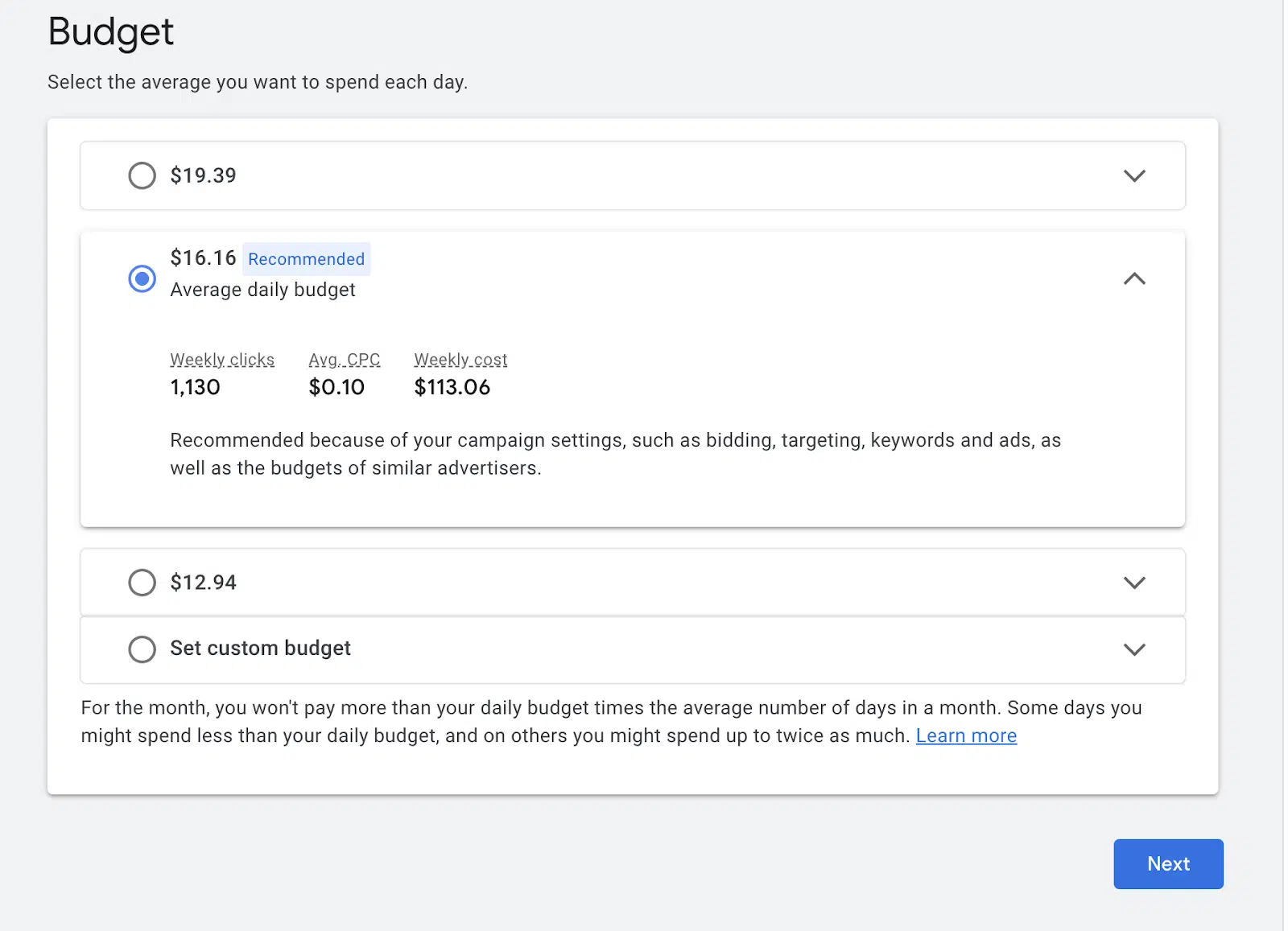
The numbers that make up this enterprise mannequin are easy:
- Impressions: The quantity of instances that your adverts have been proven to customers as they browse the web.
- Price-per-click (CPC): Common quantity that you just pay to get one consumer to click on by to your web site.
- Click on-through price (CTR): The quantity of clicks in your advert divided by the quantity of impressions.
- Conversion price: The proportion of advert clicks that leads to a desired motion, usually a sale.
- Price per conversion (additionally CPC): The price of an advert marketing campaign divided by the quantity of conversions.
This technique is so elegant and easy. If you happen to’d wish to get consideration on-line, you may select to pay for publicity on a wide range of advertising and marketing channels – search, YouTube, social media like Fb, a big advert trade, a publication, a podcast, or extra.
“The advert purchaser is an investor of a form, selecting easy methods to allocate restricted assets throughout many various kinds of promotions that provide completely different sorts of returns.”
– Tim Hwang, “Subprime Attention Crisis”
And when utilizing a standardized advert platform like with Google Adverts, you get to make your bids by way of a predictable, clear interface.
- “On this context, on-line platforms like Fb and Google supply new, shiny belongings within the broader market for grabbing consideration,” Hwang writes.
The way in which these platforms are arrange, the one impediment standing between your small business and the eye you crave is your personal pockets. You should buy the success of any advertising and marketing purpose.
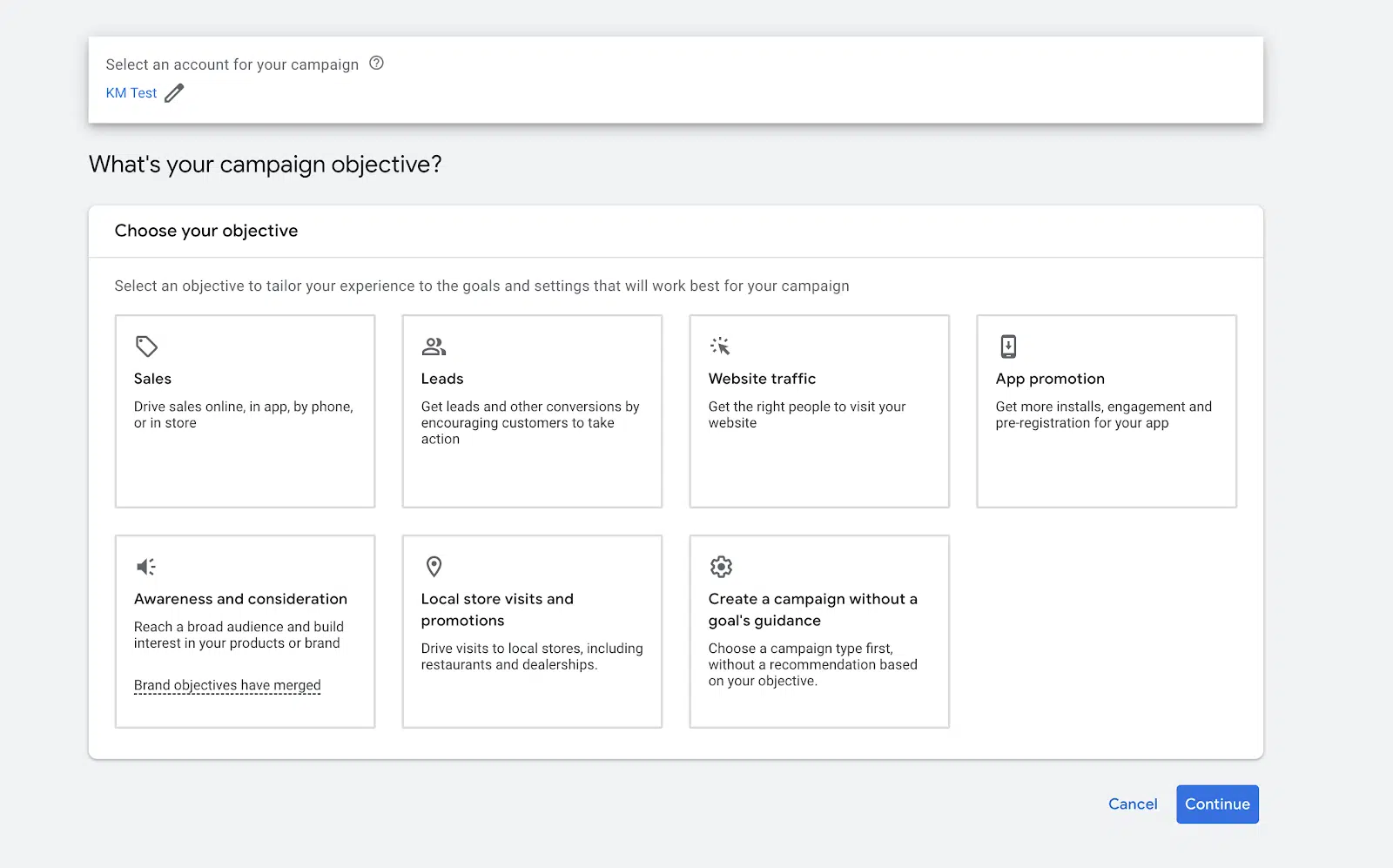
PPC treats the web as an infinite provide of little slices of each consumer’s consideration, up on the market to the very best bidder. You merely should click on some buttons, specify the textual content and media that can present up in your advert, and off you go.
Web sites with audiences can select to hire entry to these audiences out to different events by providing up adverts. For example, The Verge monetizes their very own articles this fashion, together with the very piece the place they complained about all the things on-line changing into about “promoting stuff.”
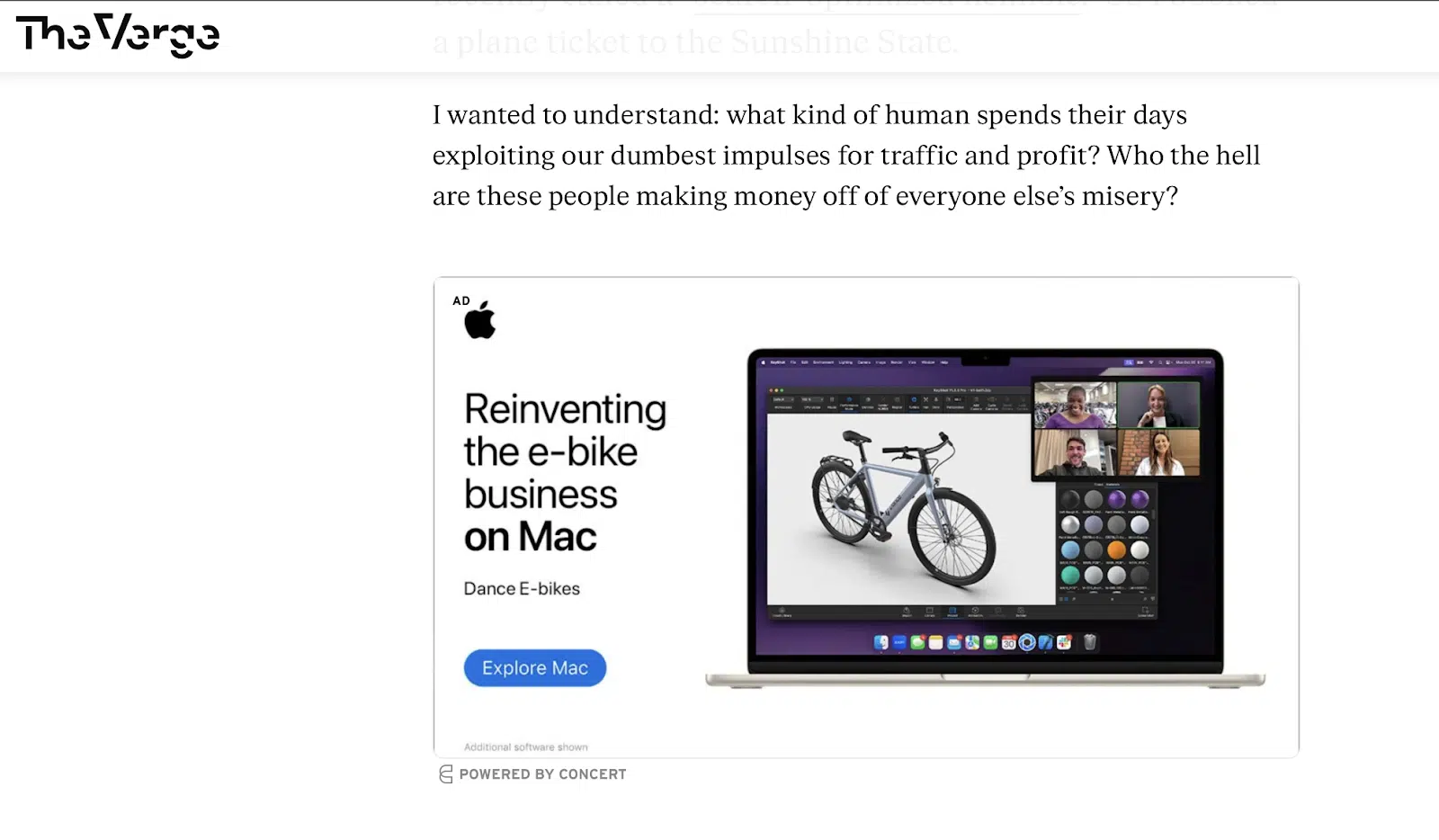
- “As an organization The Verge might be getting paid once you go to their web site, it’s chock filled with adverts. They’re being profitable off views. It’s only a completely different monetization mannequin and a special visitors supply,” Hufford informed me.
It’s all on the desk: each scroll, each click on, each final millisecond of consideration. And we’re all sick of it.
Privateness, third-party cookies, lowering efficacy of digital adverts
Adverts have turn out to be an infinite cash button for too many firms that market themselves on-line. As Rand Fishkin wrote on his SparkToro blog:
“Nearly each hyperlink a marketer positioned on the net, each advert they purchased, each search rating they achieved, and each social community put up contained simply collectable information displaying the place their efforts have been working. Entrepreneurs (and much more so, firm management) bought hooked on this trackability.”
I agree. We’ve all gotten hooked on the drug that’s digital promoting.
It’s laborious to step away from an interface that means that you can pump more cash in whereas promising a constant provide of cash out.
However the guarantees of that infinite cash button turned out to be resting on a defective basis.
You see, the predictable monitoring of return on funding (ROI) and the flexibility to point out adverts to the exact folks you needed to succeed in have been based mostly on amassing an excessive amount of consumer information.

As Emily Gertenbach, B2B content material author at (e.g.) artistic content material, defined to me:
- “Our web utilization is more and more tracked, monitored, parsed, and offered. We’re all largely tracked way more than we have to be. Firms accumulate much more information than is definitely mandatory to hold out varied advertising and marketing actions, as a result of we’ve been conditioned to consider that offering—and accepting—hyper-personalized advertising and marketing is the appropriate or fashionable factor to do.”
The Cambridge Analytica scandal confirmed us that permitting firms like Fb to gather limitless information wasn’t a good suggestion, to say the least. Because of this, we’ve been witnessing a speedy improve in information privateness laws from governments and restrictions from sure tech firms and collectives, which implies that digital promoting out of the blue bought a whole lot harder.
However as a result of a lot of the web has already turn out to be conditioned to having quick access to monitoring and figuring out customers for promoting… the mindset shift is tough.
What occurs when adverts cease working?
However with out overly intrusive monitoring capabilities, digital adverts aren’t working so nicely. As demonstrated in a recent academic paper by Nico Neumann et al.:
“Whereas we discover that deterministic information segments carry out marginally higher than probabilistic information segments, our outcomes present that each varieties of these third-party audiences don’t result in higher outcomes than random prospecting.”
Or, in plain English – promoting platforms aren’t good at predicting which customers they need to present adverts to based mostly on whether or not they’re prone to match a sure viewers persona (for instance, a selected sort {of professional} like an IT government). These predictions have been so poor that you just’d be higher off merely displaying adverts to random customers based mostly on a roll of the cube or studying a Tarot deck.
And when adverts turn out to be much less good at determining who may wish to see them, these adverts are likely to carry out a lot worse for advertisers. In case your product is geared toward 30-35-year-old suburban mothers, however your advert will get proven to 14-year-old boys – not a lot of these views will flip to clicks, not to mention gross sales.
However right here’s the place issues get difficult: how do firms reply when their adverts are out of the blue leading to fewer gross sales?
Since companies don’t wish to lose cash, when gross sales drop they’re prone to make investments extra into advertising and marketing or gross sales. And when the advertising and marketing channel used to work was digital promoting, these companies are prone to improve their advert spending to compensate for decrease conversions.
For example, in case you used to get 20,000 clicks at a 4% conversion price, you wanted your adverts to have 500,000 impressions. But when now your adverts are changing solely at 1%, then to keep up the identical quantity of visitors to your web site (20,000 clicks), you’ll want to point out these adverts 2,000,000 instances.
Which means that as adverts convert at decrease charges, firms attempt to chase the identical outcomes by making their adverts extra intrusive and displaying these adverts to an increasing number of folks.

As adverts turn out to be much less efficient, the quantity of internet spam can improve. Companies are chasing the promise of previous efficiency that’s getting more durable and more durable to succeed in, and they’re annoyed as a result of they will’t get one other hit.
Get the every day publication search entrepreneurs depend on.
How natural advertising and marketing hasn’t been allowed to exist
Now that we’ve talked about paid promoting, let’s return again to search engine optimisation.
The issue with natural advertising and marketing is that it’s rather a lot much less clear-cut than paid adverts was.
- “Creating the appropriate content material is a tough activity,” Enge summed up.
Natural advertising and marketing is difficult to do and even more durable to elucidate to folks with management over advertising and marketing budgets. As Walker defined:
- “There’s not an skilled veteran I do know who hasn’t needed to spend a good portion of their time again peddling or having to justify their existence, after dropping rank, and never understanding why it dropped, or actually, truthfully, scientifically, understanding the way it bought to its place within the first place. We now have hunches and greatest practices, however there’s additionally numerous luck and finger-crossing and hoping for the perfect.”
Incentives and assumptions created by digital adverts
Sadly, the alluring promise of excellent trackability and low barrier-to-entry with paid adverts has made it tough for a lot of companies to know how tough advertising and marketing with out these adverts really is.
Most SEOs working with content material are doing a ton of labor. With content material, we’ve to recollect the viewers who we’re making it for.
- “No search engine optimisation represents the ‘common shopper.’ Do the analysis, monitor the journeys, maintain the main focus teams,” stated Forrester.
Along with buyer analysis, as SEOs we additionally have to maintain monitor of adjustments made by platforms like Google to their algorithms, since:
- “On the finish of the day Google is the driving drive behind the varieties of content material that carry out nicely, the logic behind it, and the varieties of outcomes that present up for particular phrases,” stated Tory Gray, senior search engine optimisation advisor at Grey Dot Firm.
However as a result of digital promoting has offered firms with lovely dashboards, clear numbers, and simple ROI calculations (equivalent to price per lead or return-on-ad-spend, ROAS) – there’s been stress on natural entrepreneurs to maintain up and have their very own set of clear numbers and graphs.
Besides natural advertising and marketing can’t be pressured into an empirical field. You possibly can attempt, you may add quantitative elements, you can also make predictions. However you may by no means totally assure or attribute efficiency of any natural advertising and marketing campaigns. As a result of you may’t quantify or reliably predict the complexity of human feelings and habits.
However finance-oriented executives don’t settle for that degree of uncertainty. They wish to be certain that their advertising and marketing investments ship outcomes. Which leads to a basic incompatibility between government expectations and the artistic uncertainty inherent in most advertising and marketing work. And when entrepreneurs can’t prove why their work is valuable, their budgets get minimize.
Because of this, natural entrepreneurs attempt to do the identical issues as paid advertisers – chasing giant attain, assuming low conversion charges, fascinated with campaigns in remoted silos, and hoping for excellent attribution.
Basically, we’re all caught in a self-fulfilling cycle of selling failure.
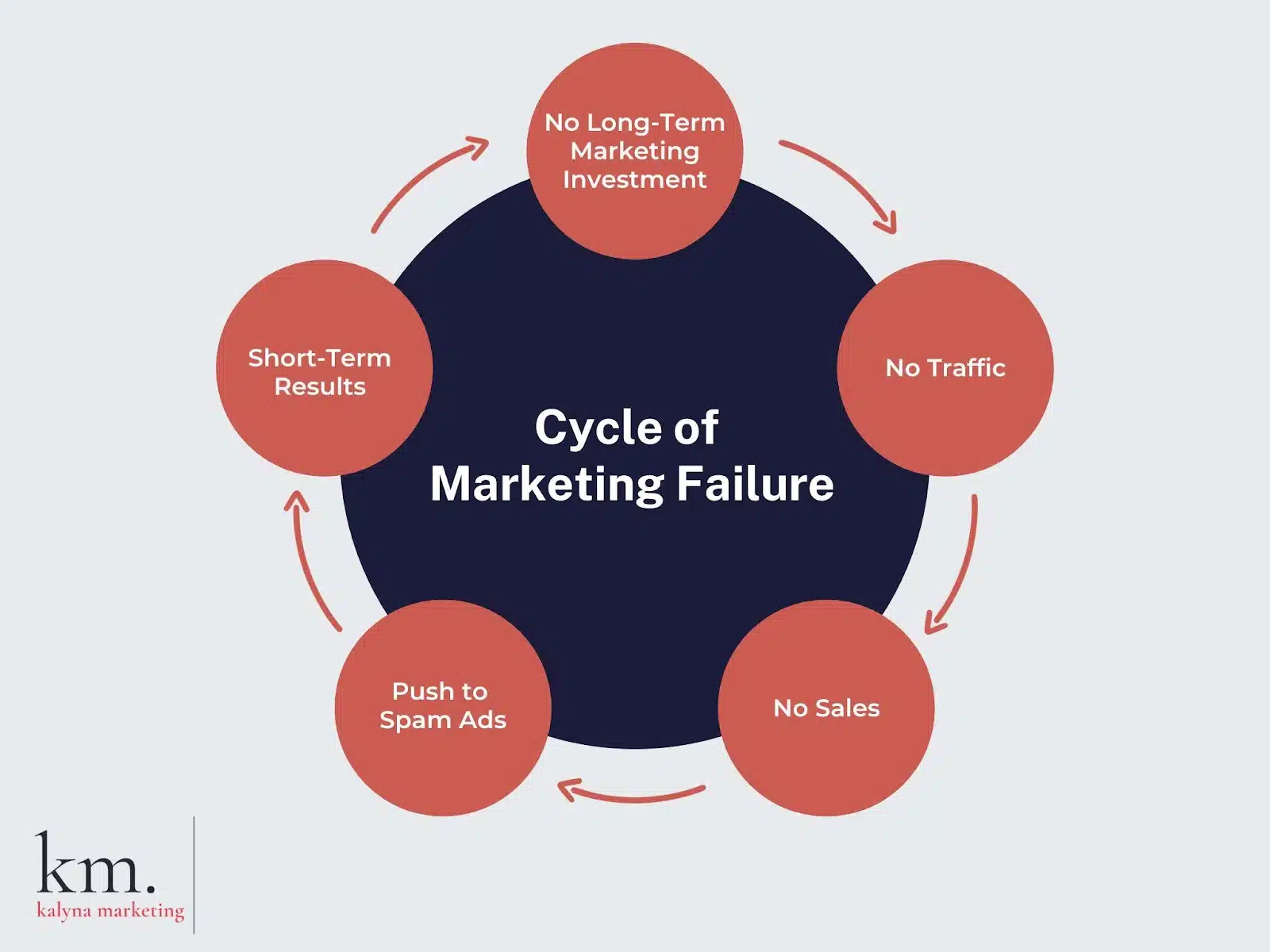
Attain in any respect prices
That is time to confess: the Verge was proper that some SEOs are making the net worse.
There are individuals who cowl blogs in what we name “skinny content material,” limitless variations of current internet pages and repetitive arguments rephrased from different web sites. Unhealthy SEOs exist.
- “search engine optimisation gurus that ‘seek the advice of’ and do not ship outcomes are a dime a dozen (and there are dozens),” stated Sarah Stockdale, founding father of Growclass.
Some firms are hiring writers or paying for AI to churn out 50 weblog posts a month, setting targets to jot down 5,000 phrases in each single put up (versus churning out an occasional 7-8,000 phrase manifesto as any good marketer clearly ought to do, proper?).
They don’t care about whether or not they’re introducing something new to the dialog. They merely wish to steal the visitors that they consider they’re entitled to.
These firms are also known as “content material mills.” Many people have been caught of their entice in some unspecified time in the future: we could have unintentionally employed them and even labored for them ourselves. I began out as a contract content material author on Upwork and churned out weblog posts for $0.01 a phrase or much less.
These advertising and marketing practices exist due to the reach-at-all-costs mentality that we see with adverts. Once you assume that each one conversion charges are low and that the one approach to get folks to purchase from you is to bother or trick them into clicking in your hyperlinks – your solely leverage is content material quantity.
Content material mills have a tendency to trace visitors and nothing else: they present dashboards with the quantity of views, guests, and key phrases that websites rank for as proof of outcomes. They usually by no means cease to have a look at how lengthy folks may keep on webpages or whether or not they’re the appropriate folks to be sending to these pages to start with.
The actual drawback with this mindset isn’t simply that it’s annoying for customers. It’s that this method doesn’t truly work.
I as soon as spoke with a good friend who informed me that their startup was afraid of doing any extra advertising and marketing. Why? As a result of their gross sales workforce turned so swamped with random visitors and gross sales name sign-ups, they have been burnt out attempting to get by all of these “leads”, desperately trying to find anyone who may truly turn out to be a buyer.
Once you put out spam content material or adverts onto the net, you get spam consideration again. Clog the net with rubbish, clog your operations with irrelevant guests who gained’t purchase from you. Play silly video games, win silly prizes.
Optimizing for attain is a race to the underside. If you happen to suppose advertising and marketing is simply too saturated, you’ve already misplaced. As a result of in case you market to everybody, you’re really advertising and marketing to no person.
The choice is studying to know your viewers and the folks you’d like to draw. However right here’s the catch: it requires making really good content material that your audience truly needs to see. And making good content is really hard.
As Enge explains, it’s good to:
- “Analysis consumer wants intimately, be taught what questions they’ve, and decide what content material must be created and what data structure must be created to make it straightforward for customers to navigate. These are duties that require a considerable amount of effort.”
Keep in mind, spam is context-dependent.
No matter, product, or firm is inherently “spam.” However when you’re churning out sufficient content material to fill a bookshelf each couple of days, then it’s spam! That’s all that these promotional efforts may ever be.
Let’s return to The Verge now, as a result of the problems that we’ve explored with advertising and marketing, adverts, and search engine optimisation aren’t remoted to simply us. They’re additionally extraordinarily acquainted to any journalist working within the subject right this moment.
As Goodwin explains:
- “Most SEOs and journalists aren’t that completely different. My school diploma is in journalism. search engine optimisation, journalist, regardless of the job titles, the top purpose is de facto about informing, educating, entertaining and – sure – typically promoting.”
And the way may we be completely different?
In any case, each media firms and entrepreneurs try to create internet pages that get consideration. We each function on social media, video platforms, blogs, and even engines like google. Our desired audiences are sometimes the identical folks, shopping the identical web from the identical cell phone or laptop.
As we compete for consideration and attain on this world of damaged financial incentives, we find yourself making the identical errors. As Hufford identified:
- “The Verge are enjoying the search engine optimisation sport simply as a lot as anyone else. There is not any manner that they’ve 1000 folks linking to their greatest cell telephones web page organically. These hyperlinks are paid for (or traded for).”
Journalists are additionally caught within the cycle of selling failure.
As a result of so many media firms are reliant on PPC promoting to help their companies, they should flood their pages with adverts and produce as a lot content material as potential to point out these adverts.
However a web site is just paid for adverts that truly get seen and clicked on. So media publications like The Verge are incentivized to drive visitors nevertheless they will.
For example, many people suspect that’s why The Verge revealed that search engine optimisation piece within the first place. As Walker summed up “it would not shock me if it was supposed to faucet into a distinct segment neighborhood to fabricate outrage and drive up web page views.”
That is, within the subject, recognized by the obscure time period “clickbait.”
Clickbait and chasing rage engagement
Look, that article was… unusual. It felt engineered to make our total subject indignant.
The Verge bought many particulars improper. For example, Ray informed me that “the now notorious ‘alligator get together’ wasn’t even a real search engine optimisation occasion, however reasonably an off-the-cuff meetup for affiliate entrepreneurs.”
It appeared like the entire level of that piece was merely to create “spicy drama.” For example:
- “Amanda (the creator) did all this analysis, attending the get together, speaking to people, and by some means by no means realized her personal preconceived bias prevented her from studying something,” Higgins defined.
And sure, it labored. As I’ve proven above – all of us in advertising and marketing and search engine optimisation are already apprehensive about our subject. We really feel like advertising and marketing, as we all know it, is perhaps falling aside. And this text dug into our insecurities.
As Walker described:
- “In numerous methods, I really feel prefer it was kicking folks once they have been feeling down, as a result of it was the darkest reflection of what all of us worry deep down.”
Strolling away from the on line casino: Why individuals are giving up
Once more, The Verge isn’t an remoted actor in our on-line wasteland. I agree with Hufford that “the sport that The Verge is taking part in, we’re all enjoying it.”
The digital advertising and marketing establishment is damaged. It’s not working for customers, web sites, journalists, or entrepreneurs. And determining easy methods to change that establishment is difficult. So many individuals are trying on the state of issues and deciding that all the things is hopeless.
Giving up on focusing on
Chasing attain in any respect prices is a type of giving up. In case you are attempting to chase these lots of of 1000’s or hundreds of thousands of impressions, meaning you’ve given up on any idea of area of interest or correctly focusing on your content material to a related viewers.
Mass advertising and marketing turns into your solely type of advertising and marketing. As a result of in case your adverts aren’t reaching the appropriate folks – may as nicely simply throw cash into the darkish and hope that it comes again within the type of some views, from anyone, who cares who they’re?
Typical search engine optimisation key phrase analysis boils right down to believing that “the way in which to run a content material technique is we do our key phrase export, we type for highest quantity and lowest problem, and there is your content material technique. I feel that should go straight into the bathroom.” As Hufford informed me.
When the outdated manner of monitoring customers is breaking down, we aren’t positive what to do as a substitute. As defined Gertenbach described, we’re feeling:
- “Disillusionment with our hyper-tracked, hyper-monetized, and hyper-advertised world of media consumption. And I don’t suppose the creator knew fairly easy methods to separate out the completely different elements of recent advertising and marketing tradition that create that sensation. Which is comprehensible—it’s advanced!”
Giving up on advertising and marketing
Others may surrender on the apply of selling fully. And maybe a part of that’s our fault. As Montserrat Cano, worldwide search engine optimisation advisor, informed me:
- As SEOs “we are likely to do a nasty job at advertising and marketing ourselves and what we do.”
Individuals are informed that to advertise themselves. They should both play the reach-at-all-costs sport or surrender. So the false conclusion that the general public is inspired to succeed in boils right down to “all advertising and marketing dangerous.”
For example, Elizabeth Tai replied to me the opposite week questioning about the way forward for the net, and he or she wrote:
- “I ponder how entrepreneurs will navigate this area or are they even allowed in.”
So many individuals suppose we’re ruining the web. It’s not simply the Verge. As Walker described:
- “Our neighborhood is having an existential disaster the place many individuals have been feeling, to some extent, some reality to what the article was saying. Many individuals I do know have been questioning whether or not or not they’re being useful or simply spinning their wheels to appease the major search engines.”
Giving up on the web
Some go so far as to begin believing that the complete web is ruined or could have been a mistake.
However how can that be? The web isn’t static. As Becky Hendriksen, CEO of Inexperienced Hearted, defined to me:
- “An web that stops evolving is ruined. A non-ruined web will proceed to shift and adapt.”
So if we surrender on the web, we’re dooming it to fail.
What if issues may change?
What if we refuse to offer in to nihilism? What if we truly attempt to salvage what has been nice about niching down, advertising and marketing, and the web itself?
In any case, issues have modified earlier than.
search engine optimisation was very completely different even a couple of years in the past. As Eugene Zatiychuk, certainly one of my shoppers and search engine optimisation lead at Belkins, informed me:
- “You could possibly get the highest place in Google with some spam-ish methods. However 5 years in the past, Google improved due to issues we, SEOs, have executed. They usually truly up to date the algorithm to fight abuse. And now, it is virtually inconceivable to do spam. So you are able to do it. It simply does not work.”
Google has modified the way it ranks pages, and the spammy ways of earlier years are not prevalent or efficient. How? As Schwartz, president at RustyBrick, Inc. and contributing editor to Search Engine Land, stated:
- “We simply cracked down. What was ‘accepted’ 20 years in the past is just not right this moment and for good purpose.“
The place search is transferring
Google has been pushing many updates to prioritize area of interest, focused, and user-centric content material.
Which means that for pages to rank, they need to present why a specific creator is certified to talk on a subject. As Lam defined:
- “For instance, if a web site produces a weblog evaluating execs and cons of visiting completely different nationwide parks, however the author has by no means visited these parks, there’s no readability on who the author is – then that weblog might be thought of low high quality. And in idea, it shouldn’t be straightforward to seek out on Google. That is nice for searches, as a result of we don’t need suggestions from sources that don’t have first-hand experience and expertise to attract on.”
Fixing the web: Refuse the sucker’s alternative
Look, SEOs aren’t a special breed of human. We’re additionally web customers who wish to have an excellent time on-line and assist others navigate the net.
- As Stockdale stated, “most entrepreneurs targeted on search engine optimisation simply wish to do good work and assist their firms and shoppers be seen in an more and more noisy content material atmosphere.”
The web doesn’t should be poisonous sludge (or perhaps a cesspool, as former Google CEO Eric Schmidt as soon as referred to as it manner again in 2008). It could possibly additionally make us higher. For instance, Lam informed me:
- “For me, as a mother, a spouse, a pacesetter, and easily as a human, I admire the web, as a result of it offers me prompt entry to the knowledge and inspiration I have to be the perfect (and truthfully, much less anxious) model of myself.”
However to enhance the nice, we have to make adjustments. I agree with Gertenbach, who stated:
- “To alter the basic dissatisfaction expressed in (The Verge) article, we’d should take a broader have a look at how we (as a society) eat, demand, create, and monetize content material.”
We should always do issues the appropriate manner. Which implies that as SEOs, we should bear in mind what our jobs are supposed to do:
- “As findability specialists, we assist to floor and maximize the visibility of what is wanted at every stage of the customers’ search journey, regardless of the platform or the format.” defined Solís.
We aren’t on reverse groups from common customers or journalists. And we will educate our subject to suppose in another way. For example, right here’s how Stockdale teaches search engine optimisation at Growclass:
- “Promoting one thing ought to imply connecting somebody with an issue to a helpful answer, not tricking them. We train fashionable advertising and marketing, targeted on the wants of the shopper, and delighting folks.”
What really ruined the web: Erasing humanity out of our on-line experiences
We should always let everybody be human.
Entrepreneurs must be trusted to market how they suppose is true. Reviewers and influencers must be trusted to explain their actual experiences with merchandise. And customers and consumers must be trusted to determine what they need to purchase for themselves.
The dependence on giant advert networks has turn out to be like the perfect espoused by crypto – a completely zero belief system with no human intervention or appreciation for humanity within the combine. And in surrendering our humanity, we’ve helped create a spam-ridden wasteland.
This isn’t a narrative about SEOs, the Verge, or any specific group. This story is about people who log on and wish to join with others. And that story can simply have an optimistic future.
In any case, as Gertenbach informed me:
- “There’s loads of room to create content material and digital experiences that reply questions individuals are trying to find on-line.”
I gained’t faux to know what that future would seem like. However I do know that we gained’t get there by calling one another “goblins.”
Opinions expressed on this article are these of the visitor creator and never essentially Search Engine Land. Employees authors are listed here.
[ad_2]
Source link




